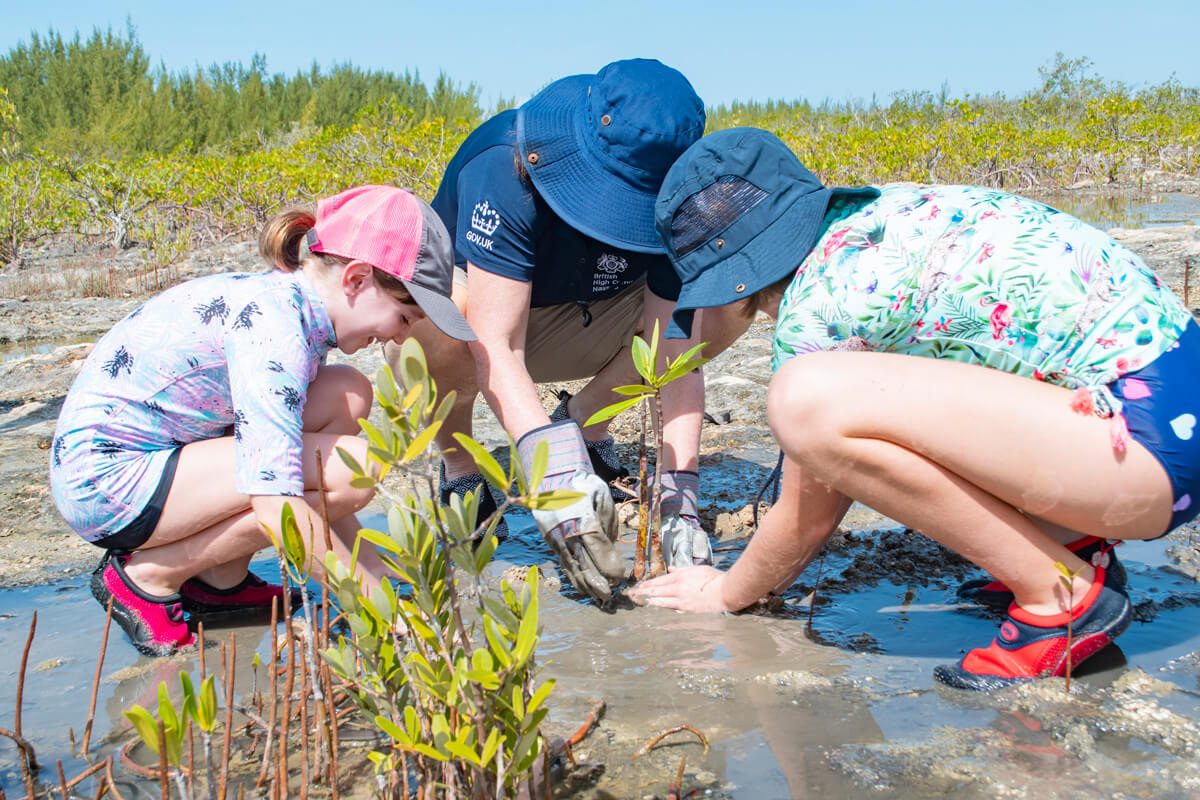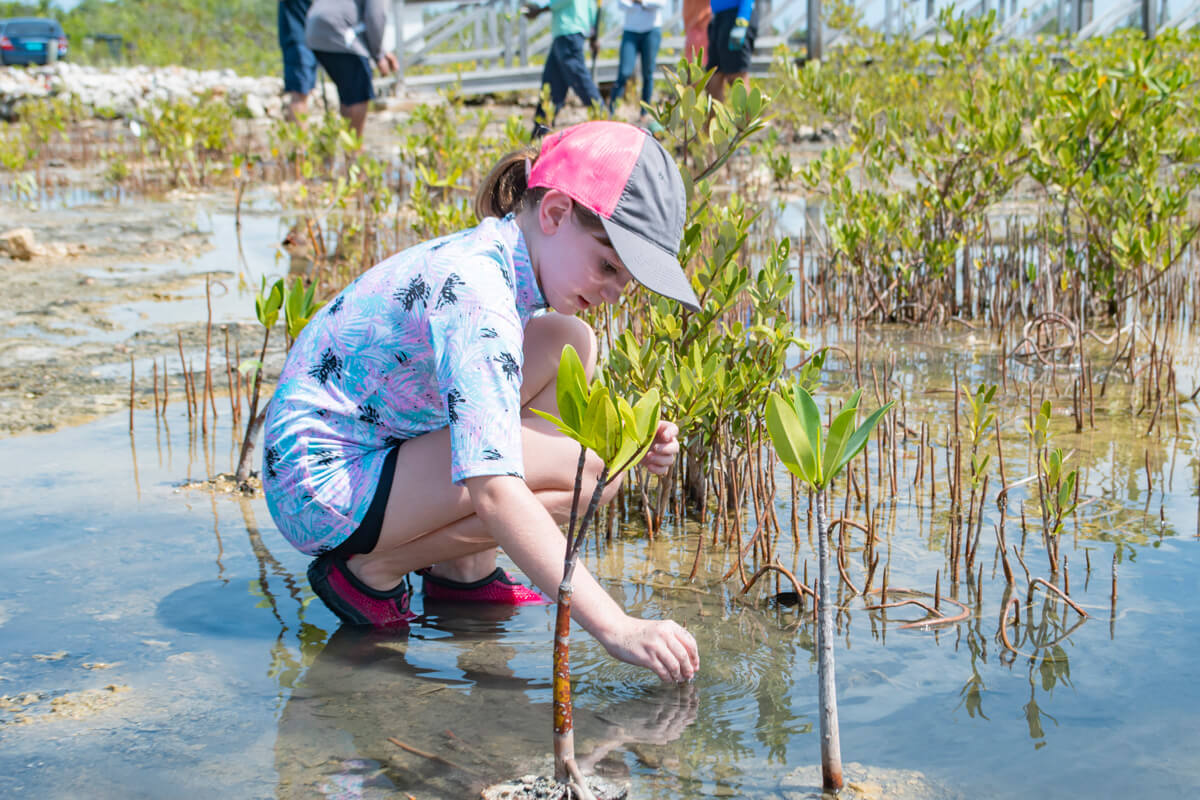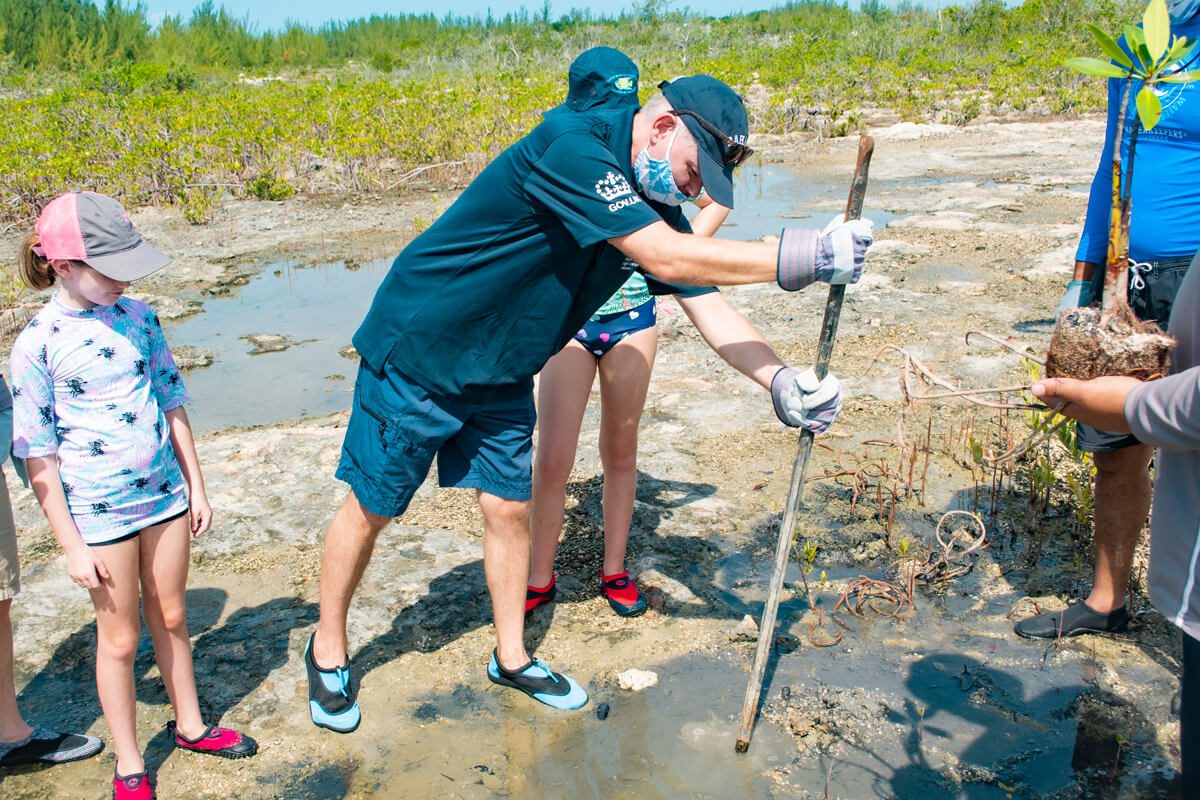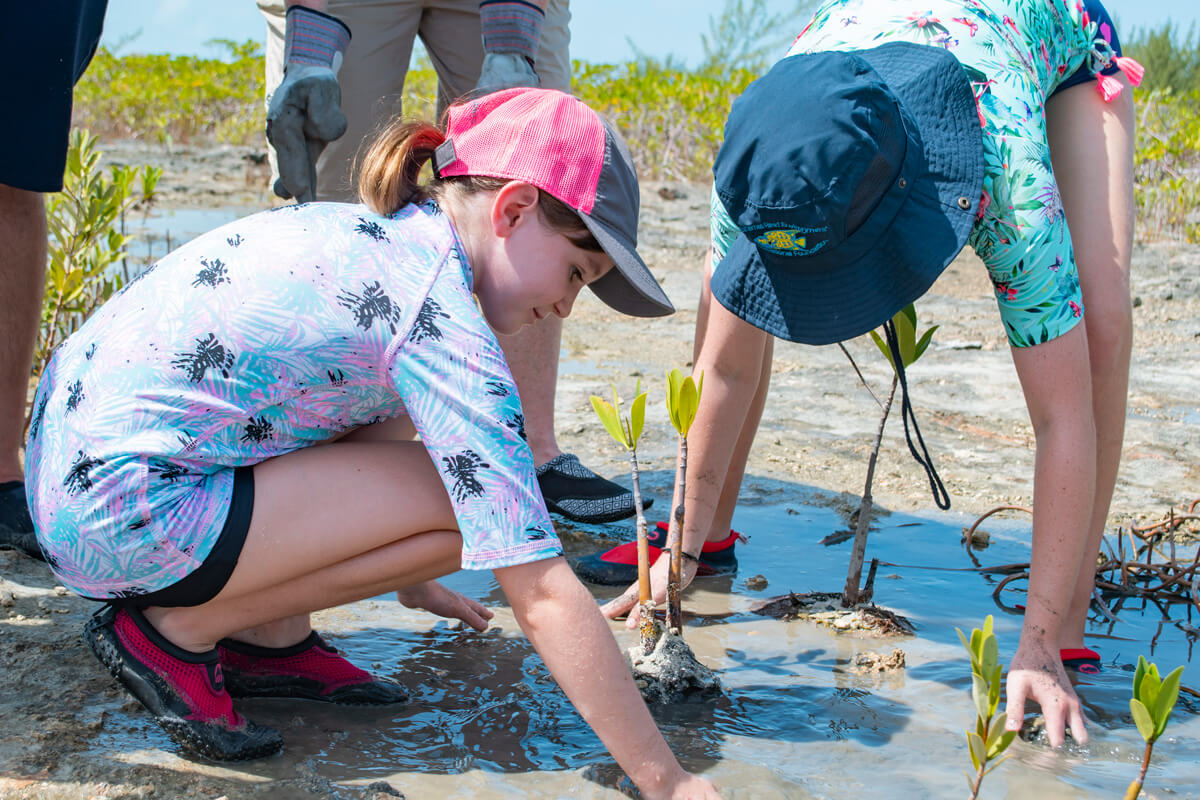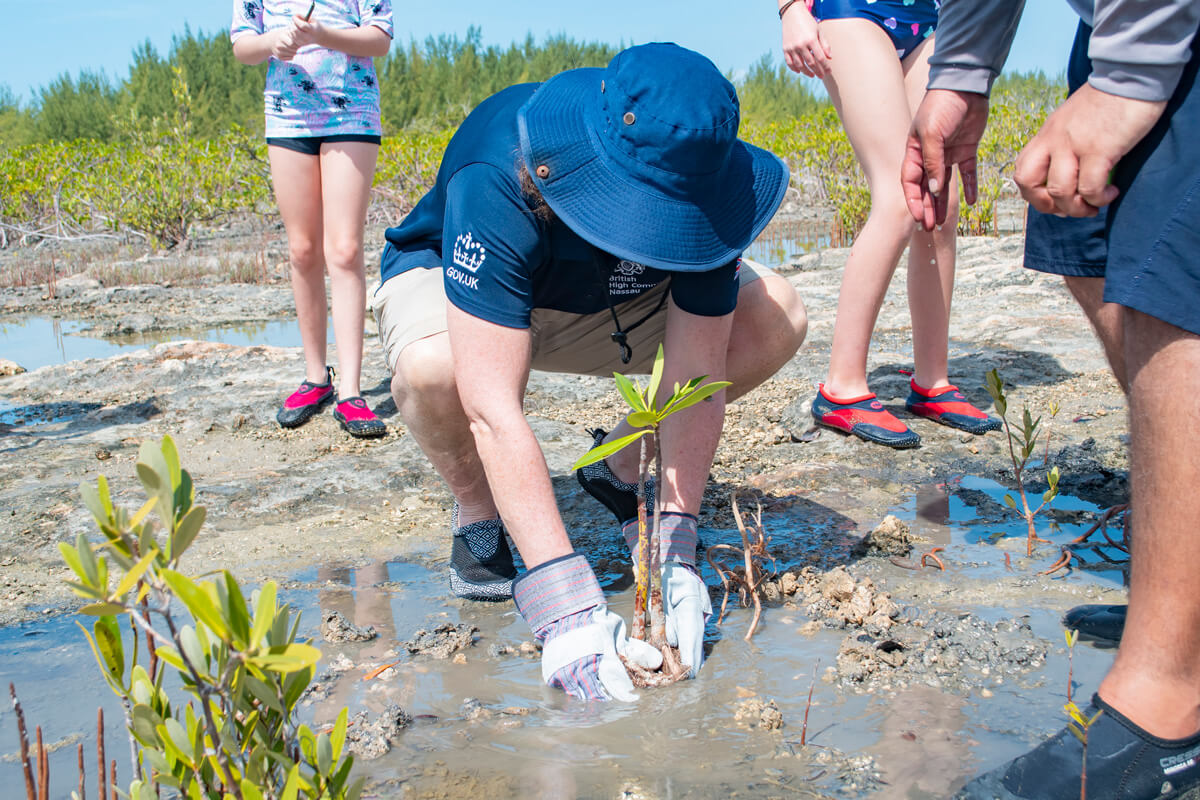British High Commissioner plants mangroves at Bonefish Pond National Park
July 7th, 2021
Why do we plant mangroves? How does it help the environment, and how do they benefit us?
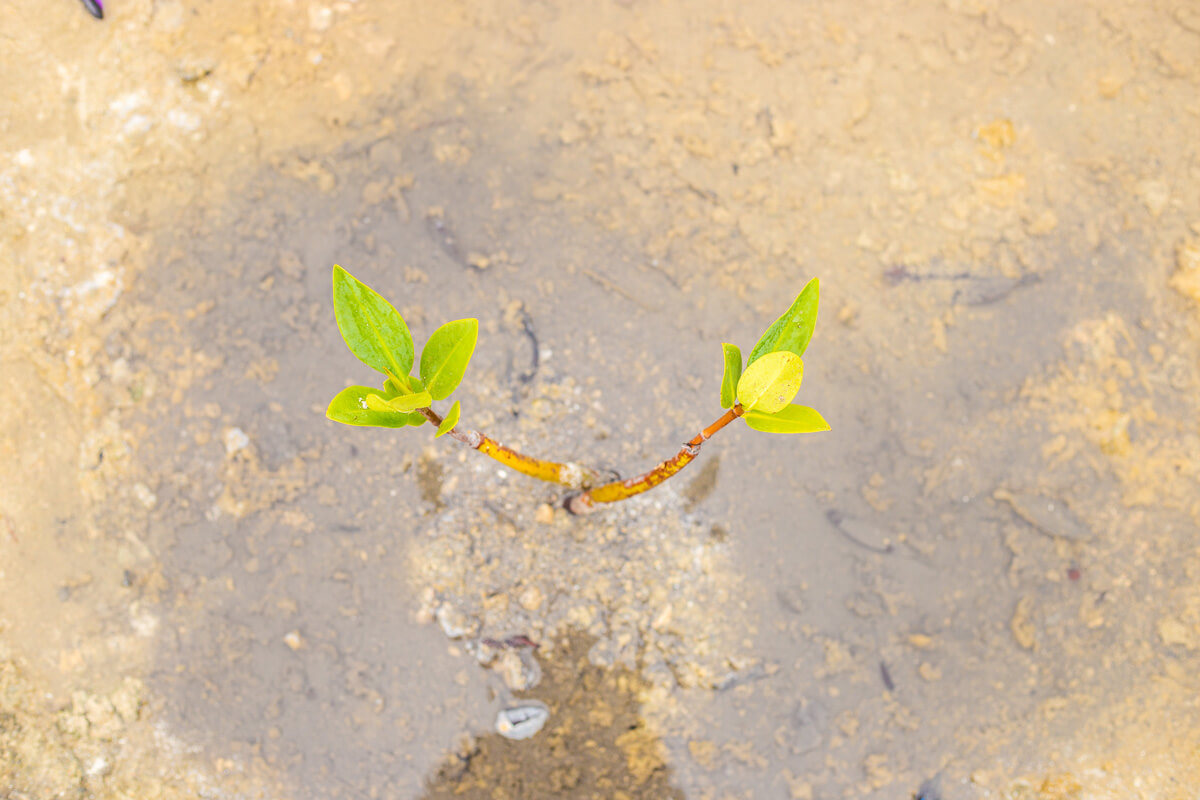
Young mangrove plants at Bonefish Pond National Park
Mangroves are climate change superheroes, absorbing massive amounts of carbon from our atmosphere and providing us with many other ecosystem services. Among these services is the coastal resilience and natural defence they provide against storms for low-lying countries that are prone to the effects of climate change, like The Bahamas.
Simply put, the world needs mangroves, but in many countries, they, along with their valuable services, have been lost or degraded. Therefore mangrove restoration is essential in many places, including numerous areas across The Bahamas.
Successful restoration efforts establish healthy, diverse, mangrove forests that offer benefits for both nature and people.
Bonefish Pond National Park has been a site for mangrove restoration for many years. It is a ‘last stand’ mangrove ecosystem, meaning it’s the last remaining intact mangrove system on the island of New Providence. Other mangrove ecosystems still exist on the island, but they have been degraded by things like dumping, development and pollution.
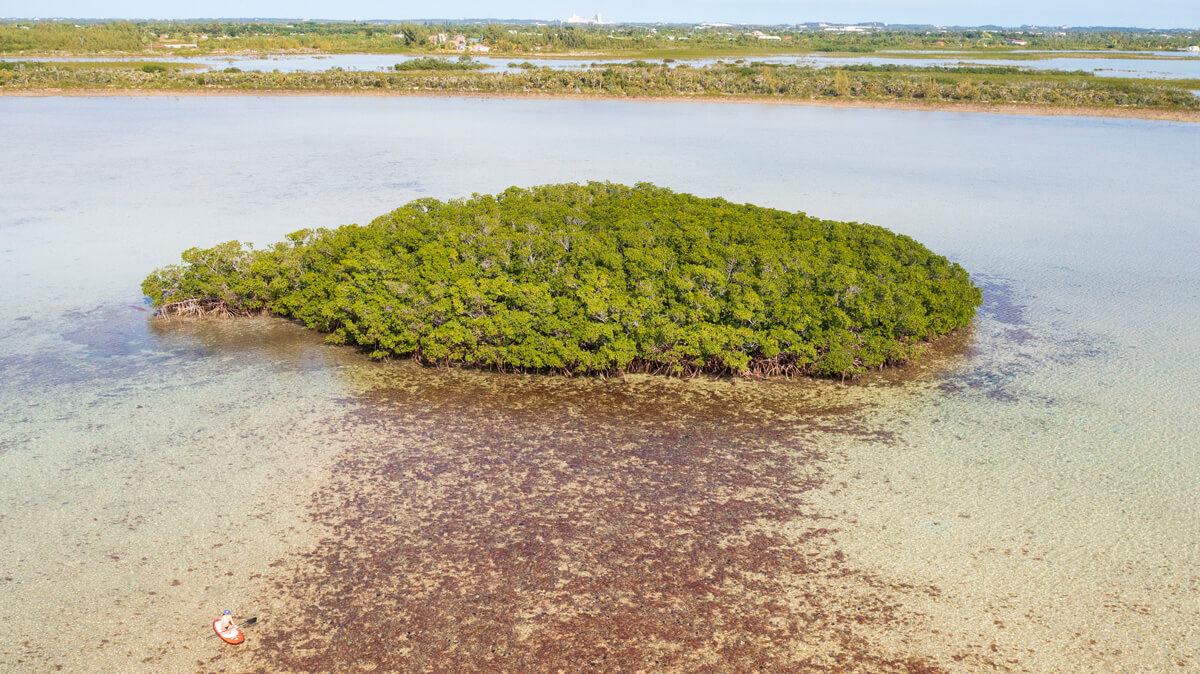
Mangrove thickets like this one provide habitat for many species of wildlife
Bonefish Pond itself was a dumping ground before it became a national park in 2002.
On Saturday, July 3rd, we welcomed British High Commissioner Sarah Dickson and her family to the Bonefish Pond National Park to explore this beautiful protected space, and also to plant some mangroves to help combat the effects of climate change.
During their visit, they received a tour of this important ecosystem and learnt about its history and the species it protects; getting a chance to look at some of the fish and birds that call Bonefish Pond home.
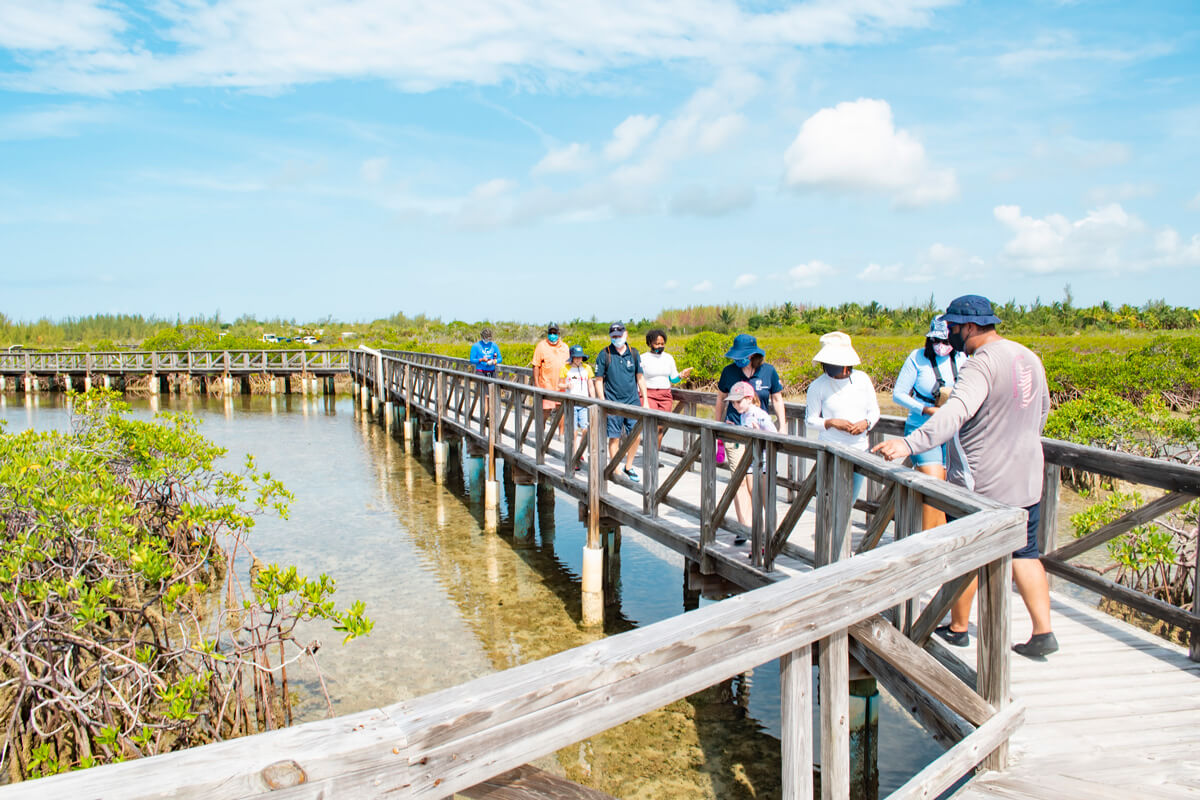
Afterwards, it was time to get down and dirty to plant some mangrove seedlings and propagules at an ongoing restoration site in the park. Together Sarah and her family planted over 150 propagules and seedlings. These young plants will grow up and join the network of other mangroves in the park, protecting our coastlines and providing vital habitats for marine species.
“What a brilliant way to spend a day – out in nature with the Bahamas National Trust. I hope our mangrove planting will help protect the coastline. I also learned that mangrove forests store more carbon than other types of forests, which in turn reduces global warming. I would recommend the national parks to anyone. The Bonefish Pond National Park is the 6th one I have visited in the beautiful Bahamas.” – Sarah Dickson, British High Commissioner to The Bahamas
The UK will host the 26th UN Climate Change Conference of the Parties (COP26) in Glasgow on 31 October – 12 November 2021.
The COP26 summit will bring parties together to accelerate action towards the goals of the Paris Agreement and the UN Framework Convention on Climate Change
The United Nations has declared 2021 as the beginning of the “UN Decade on Ecosystem Restoration.” Over the next few years, the BNT plans to empower local communities and engage with partners, supporters, and corporates to restore mangrove forests and other ecosystems nationwide.
To support this work, become a member of the BNT or make a donation to conservation
For more information about this article please contact Elijah Sands: esands@bnt.bs
